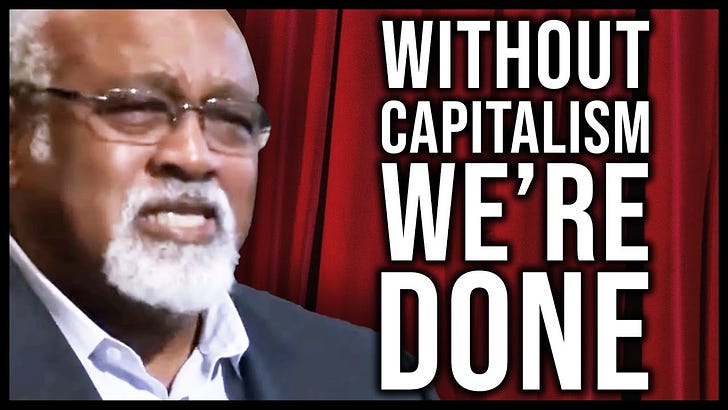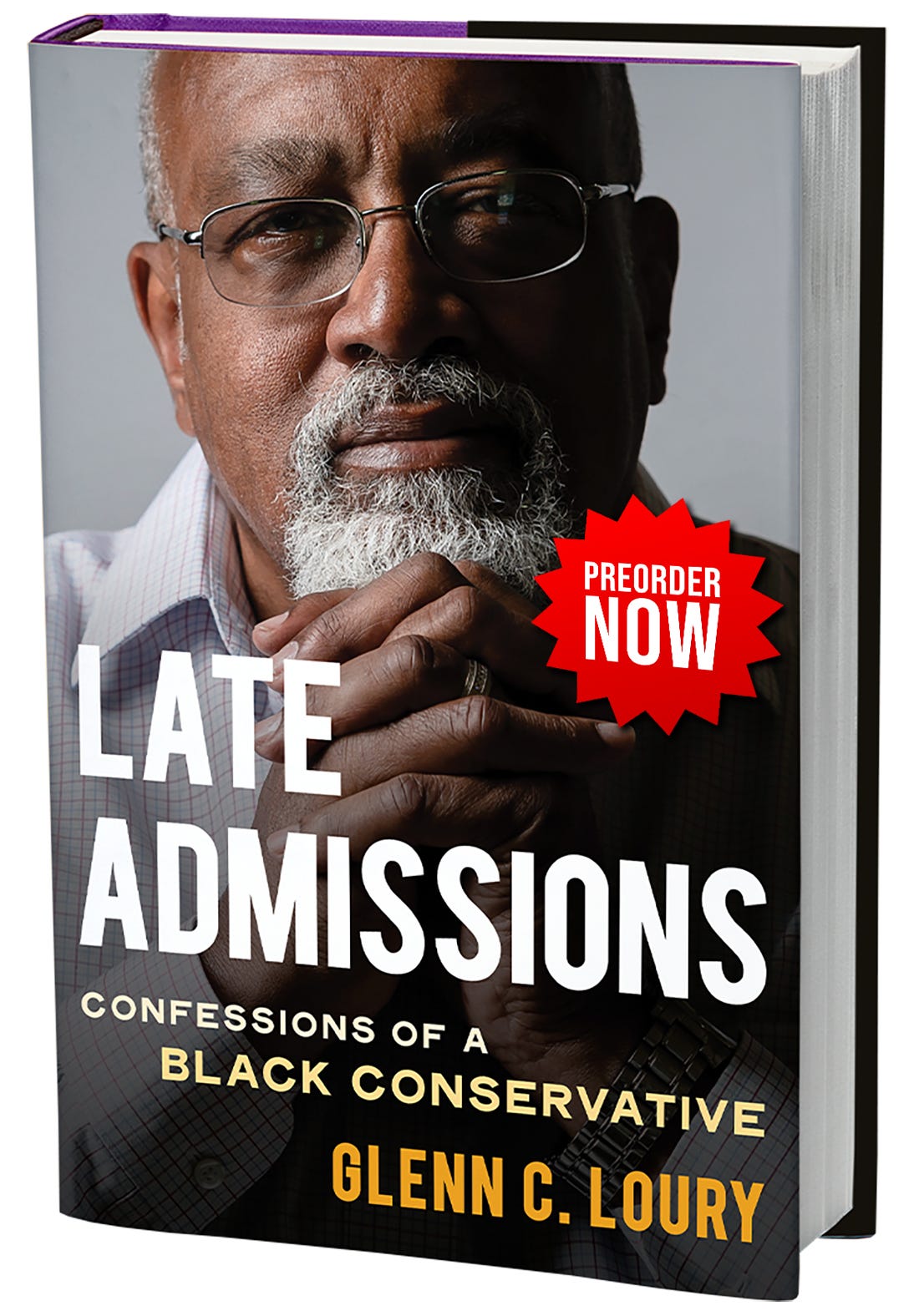Back in 1980, the great Thomas Sowell organized the “Black Alternatives Conference” at the Fairmont Hotel in San Francisco. The “alternatives” in question were political in nature. The Civil Rights Era remedies designed to get African American communities on track after decades of Jim Crow were not working, and liberal black leaders had no policy prescriptions that would help. Ronald Reagan had just been elected—his longtime aide Edwin Meese attended the conference—and the time was right for black conservatives to offer remedies of their own that would avoid the pitfalls of the ‘60s and ‘70s.
By 2022, it seemed to me and many others that the time was right once again for black conservatives (and “heterodox” thinkers) to gather together and revive the spirit of what had come to be known as the Fairmont Conference. The post-Trayvon Martin, post-Michael Brown, post-George Floyd political landscape had shifted in a direction that I felt was leading us toward disaster. So I, along with Jason Riley, Ian Rowe, and Shelby Steele, organized another iteration of Sowell’s conference, this time at the Old Parkland campus in Dallas.
We knew a conference couldn’t solve the monumental problems we were then facing and still face. But as wrongheaded, radical leftist positions on race were being absorbed into mainstream political discourse, alternatives were once again needed. In this clip (you can watch the whole panel here), Jason Reilly asks me to address two ideas that are currently under heavy fire: capitalism and meritocracy. In my view, they go hand in hand. Without the competition spurred by capitalism, our society would stagnate and wither. Without true meritocracy, my people will never fulfill their true potential to compete and succeed in our society.
These were once mainstream, almost common-sensical views in America, but now they need defending. And you can bet I’ll keep defending them as long as I have breath in my lungs.
This post is free and available to the public. To get early access to episodes of The Glenn Show, as well as an ad-free podcast feed, comments, Q&As, and other exclusive content and benefits, click below.
JASON RILEY: Let me follow up, Glenn. You mentioned you're an economist. Let me ask you, as an economist. You mentioned that this is a battle of ideas. One of the ideas that the left in general has put forward is that the real problem in terms of racial inequality in this country is capitalism, that it doesn't work. And it certainly doesn't work to close these gaps that we all want to see narrowed, if not closed entirely. And that we need to stop going down this route. We need to move toward a larger welfare state, something in line with the social democracies of Western Europe.
If we want to see less inequality, how do you respond to that argument as an economist?
GLENN LOURY: I think it's mistaken. I think the history of the twentieth century demonstrates its error. You make this point in your opening remarks. You said that when the economy prospers, when there's economic growth, when there's a tight labor market, that's good for people at the bottom. And I think that's what the data show.
But I think the point is much deeper than that. Capitalism, if I may say so—and I know I'm preaching to the choir here—is the foundation of our prosperity. It's what makes possible the idea that we would have social justice. Without the dynamism, without the incentives, without the aspiration to accumulate wealth, without the ingenuity, without the creativity, without starting new companies, without creating new ideas, without the hope that people have that they can make their lives better through their own efforts, we're done.
This is a dynamic, open society. When people march with their feet looking for better lives, this is where they want to come. Capitalism is at the foundation of what makes possible the prosperity for the American society. Is it perfect? No. Does there, is there a need for regulation and so forth? Of course. But the idea that you would adopt a centralized social control government dominated way of allocating resources and making social decisions? That's the road to serfdom. Who said that?
In the universities where I live, racial capitalism is all the rage in the Afro Studies department, in the critical theory departments and whatnot. They have in mind slavery. They say the rise of Europe, the domination of white people over the globe it's all pie-in-the-sky. On the ground, where people live, where they vote with their feet, open markets, free society, private property, the accumulation of wealth, striving to do better for yourself and your families, that's the ticket.
JASON RILEY: One of the developments in recent years I find most troubling is the attack on meritocracy in our schools in the name of helping black people. To me, it's an attitude that these black kids will never catch up, so we have to stop measuring. We have to get rid of entrance exams, whether it's to a specialized high school, whether it's to a Gifted and Talented program, whether it's to college. Get rid of the SAT. Get rid of the LSAT. That's how we'll get the parity that we desire. Because they're just never going to otherwise catch up. And I wonder what you make of these developments that that we've seen in recent years.
GLENN LOURY: It's very distressing. It is a corollary, I think, to the observation about corruption that this client-patron racial dynamic that Shelby [Steele] has outlined brilliantly in his books brings into play. If the goal is equality for African Americans, it's fundamentally inconsistent with achieving that goal.
And I think we have to face up to something that's not exactly pretty, but I think is just the existential reality of our condition. Which is that, given the legacy of slavery and Jim Crow exclusion and whatnot, given the suppression and oppression that's a historical fact, the diminishment of African Americans as a consequence of that oppression—not that there wasn't valiant accomplishment that took place under those conditions—but nevertheless, given that, there's something that has to be demonstrated here, which is that we're fit for equal participation and equal performance within the modern civilization that we inhabit.
I have no doubt that we are. But that has to actually be demonstrated. Don't take away the guidelines that I was going to use to show you my fitness. I was going to pass the test. I was going to excel at the standard. I was going to be brilliant at the measure that you apply to everybody of our fitness. But instead you patronize me. You treat me like a child. You pat me on the head. You implicitly convey your lack of confidence in my capacity to perform.
You rob me of the only way that I was going to ever be your equal. Equality. Real, genuine equality. Not optics equality. Not titular equality. Not patron-client equality. Performance equality is the only way that we're going to get out of the box, it seems to me. This corruption is fundamental. And moreover, you're trashing your own institutions when you do it, because when you get rid of the test, you get rid of it for everybody, not just for me.
You water down, you dumb down, you equivocate, you grade inflate. So maybe we black folk here, those brave few of us who are prepared to stand for something, are a canary in the coal mine sounding an alarm for the country as a whole as we slide into this pit.






Thank you, Glenn! So much respect for you.
YouTube Video of panel discussion [Time 10:00]; Facilitator asks Shelby Steele “If societal racism against Black Americans has ended, then why is there not more prosperity?” - my paraphrase.
My response part 1:
In research, association is not causation. This means that we don’t necessarily know the cause of limited prosperity among Black Americans. I believe that honest discourse will increase the likelihood of our discovering “Why” at some point.
My response part 2:
Identity activism has done tremendous harm to Black Americans by messaging “You are disliked by society”,
“Police hate you and want to harm you”, “You are different from non-Black Americans” and
“You must encounter a same-race teacher, doctor, etc., for the relationship to be fruitful”.
In 2019 at work, I sat in rooms where identity activists advised people to interpret experiences as “A glass half-empty”. At a discussion on perceived need for race-matched therapist”; I disagreed and said that a behavioral science foundation and professional ethics will yield benefit regardless of race. After saying that, I was not allowed to speak again during that meeting.